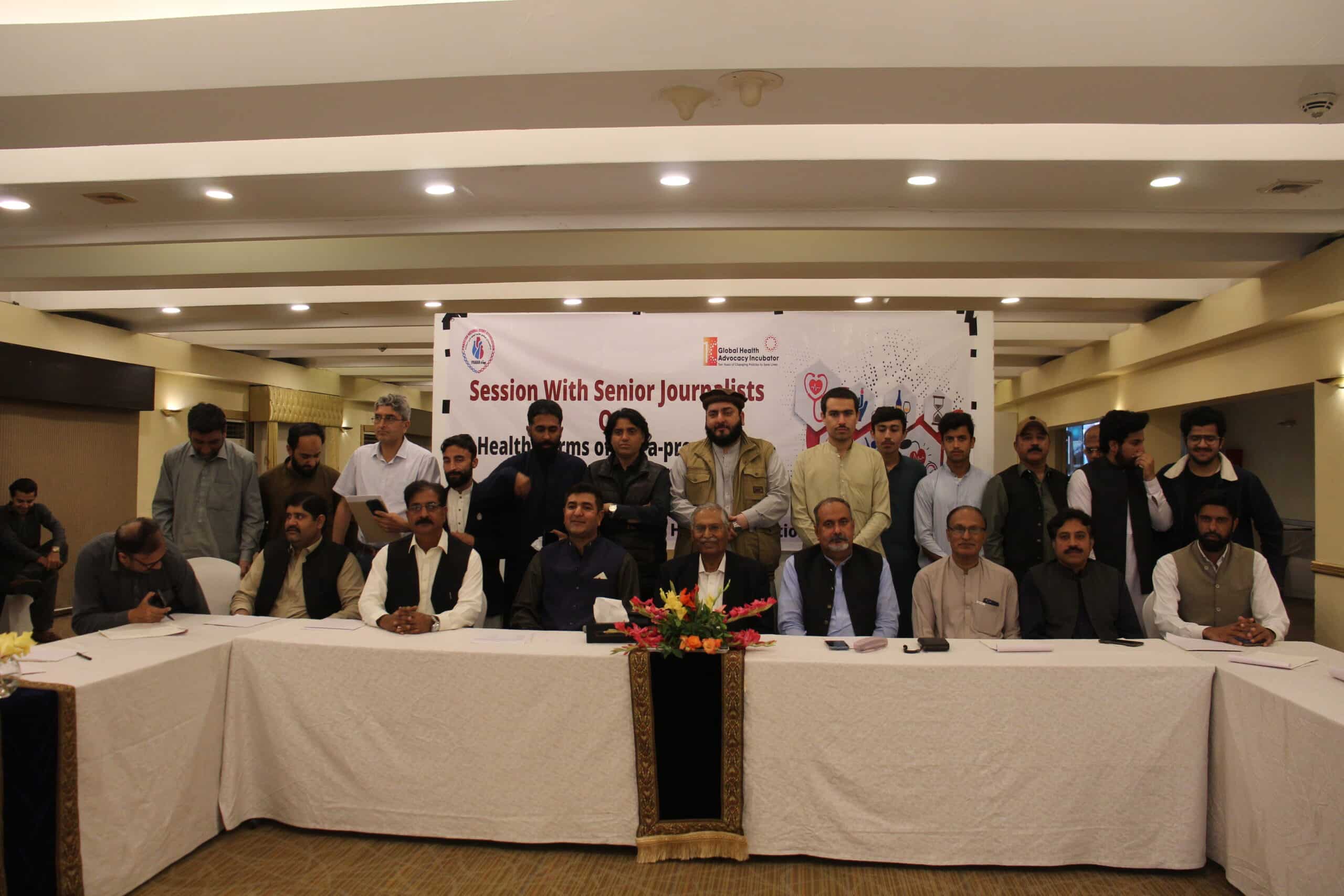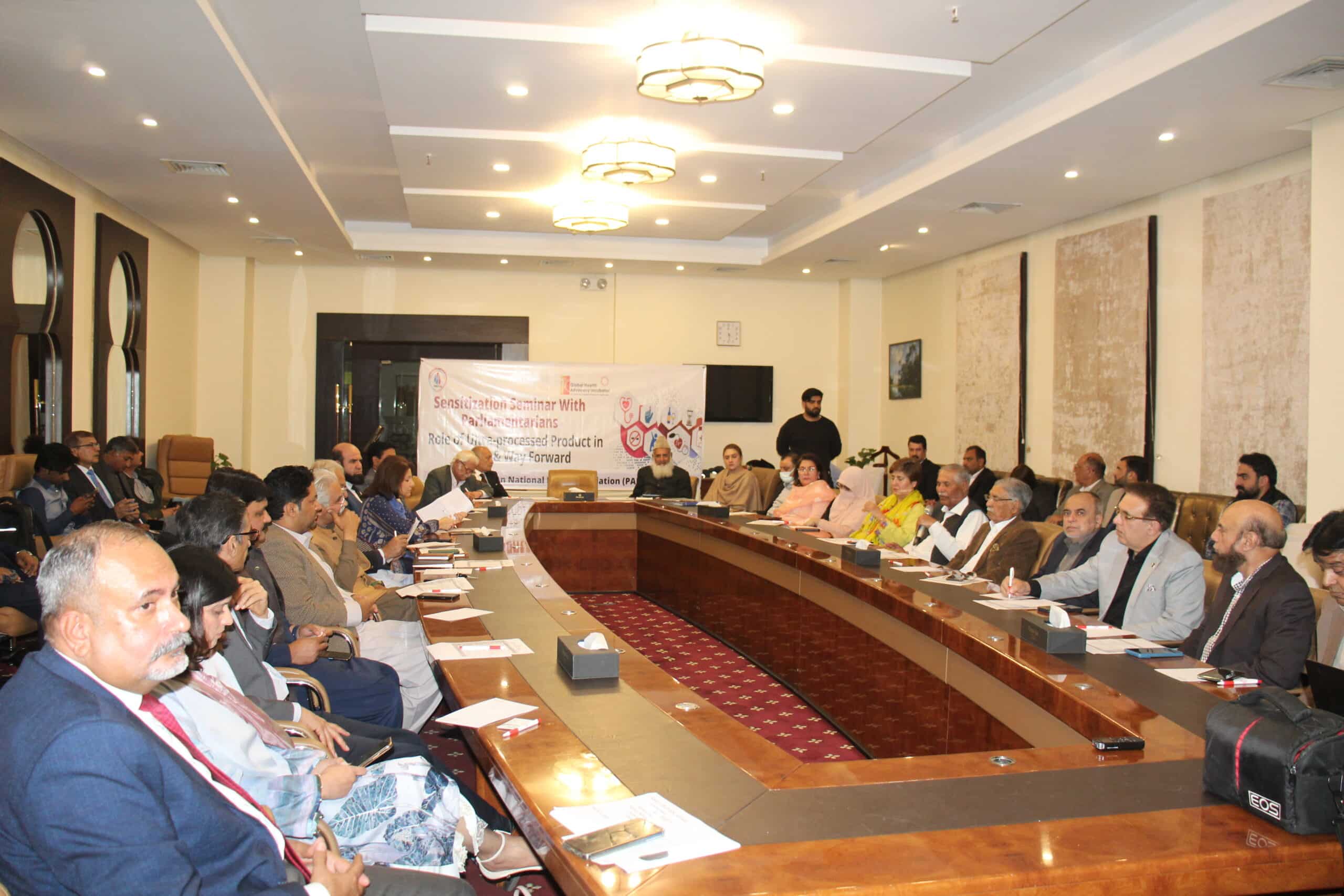Advocacy Consultative Meeting
Advocacy Consultative Meeting

Non communicable diseases (NCDs) encompass all diseases that are not transmitted from person to person. These NCDs lead to morbidity and premature mortality worldwide and the burden of NCDs is a major challenge for social and economic development. The five principal NCDs are cardiovascular diseases (CVD), cancers, chronic respiratory diseases, diabetes, and mental and neurological conditions. These NCDs have five shared risk factors: tobacco use, harmful use of alcohol, air pollution, unhealthy diet, and physical inactivity. The NCDs are a major threat to health systems globally with no exception to Pakistan. The burden of NCDs is on the rise in the country. According to the NCD STEP Survey 2014, more than four out of ten (41.3%) are obese or overweight, while 37% have hypertension. Similarly, every 4th adult (26%) is suffering from type 2 diabetes. According to International Diabetes Federation 2019 report, Pakistan has the 4th highest burden of type 2 diabetes worldwide with more than 19 million cases.
Pakistan don’t have any comprehensive and integrated policies among the various sectors like health, food, agriculture, finance and other relevant departments which could contribute in prevention of the diseases and its associated risk factors. There is a dire need to mobilize policy makers and advocate for formulation of policies which can create enabling environment for prevention of these NCDs. The world has done significant progress on formulation such policies which includes tobacco control, taxes on sugar sweetened beverages, warning signs for high salt and sugar foods, reduction in the trans-fats and other related policies.
Objectives
The other all theme of the conference will be highlighting the importance of prevention of non-communicable diseases in the country.
The overall all objectives of the conference will be to provide a shared plate form to local and international researchers, academicians and policy makers to share knowledge, promote research and formulate evidence based policy recommendations for Pakistan based on the global best practices. The specific objectives are mentioned below.
- Provide platform for sharing of latest scientific evidence related to risk factors, policy analysis and identifying gaps, global best practices, and formulate recommendations for prevention of these NCDs.
- Advocate and mobilize healthy food policy solutions and other measures to reduce NCDs in Pakistan.
- Provide networking opportunity to students, national and international researchers, academicians, policy makers, government representatives, civil society and media for mutual learning and promotion of evidence based policy solutions for prevention and control of NCDs.


